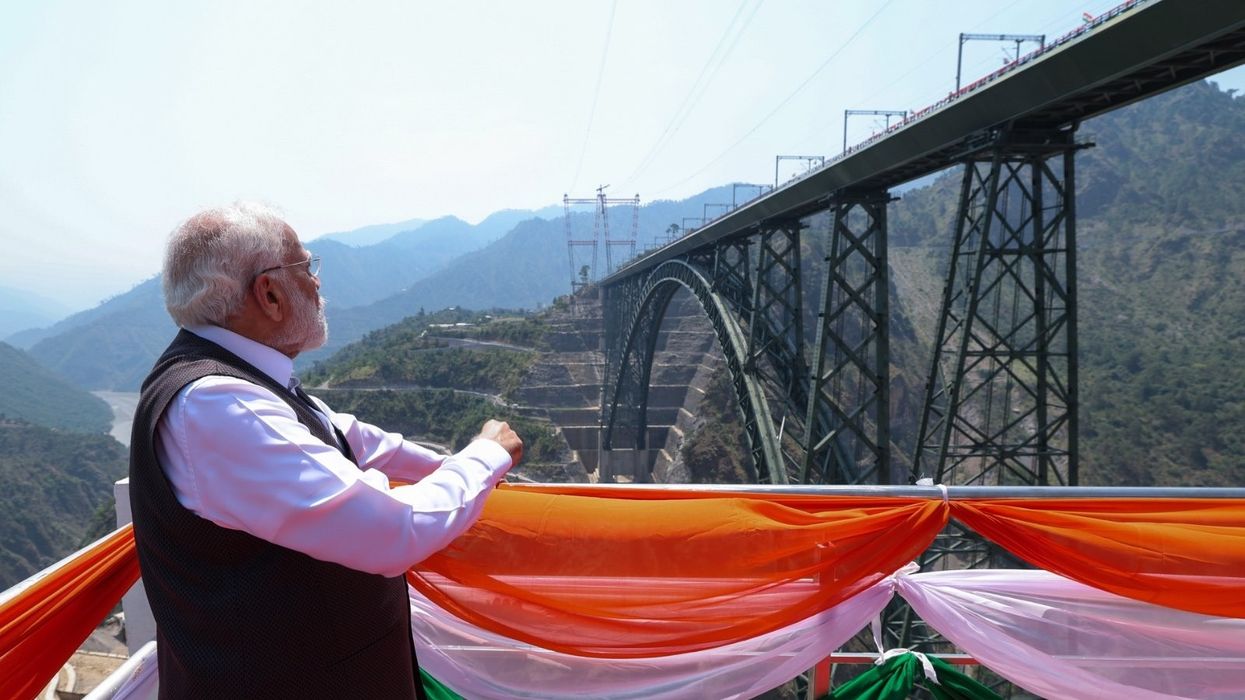INDIA is committed to efforts to develop Jammu and Kashmir, prime minister Narendra Modi said last Friday (6), accusing Pakistan of seeking to destroy livelihoods there with April's deadly attack on tourists.
He was speaking on his first visit to the Himalayan region since Islamist attackers targeted Hindu tourists in the popular Pahalgam area, killing 26 men, triggering hostilities between the countries that ended in a ceasefire last month.
"The atmosphere of development that emerged in Jammu and Kashmir will not be hindered by the attack ... I will not let development stop here," Modi said in remarks after inaugurating infrastructure projects.
Key among these was a $5-billion rail link between the Kashmir Valley and the rest of India, which has been more than 40 years in the making and features the world's highest railway arch bridge.
Others include highways, city roads and a new medical college.
"Pakistan will never forget... its shameful loss," the prime minister told crowds.
"Friends, today's event is a grand festival of India's unity and firm resolve," Modi said after striding across the soaring bridge to formally launch it for rail traffic.
"This is a symbol and celebration of rising India," he said of the Chenab Bridge, which connects two mountains.
New Delhi calls the Chenab span the "world's highest railway arch bridge", sitting 359 metres (1,117 feet) above a river.
While several road and pipeline bridges are higher, Guinness World Records confirmed that Chenab trumps the previous highest railway bridge, the Najiehe in China.
Modi said the railway was "an extraordinary feat of architecture" that "will improve connectivity" by providing the first rail link from the Indian plains up to mountainous Kashmir.
With 36 tunnels and 943 bridges, the new railway runs for 272 km (169 miles) and connects Udhampur, Srinagar and Baramulla.
It is expected to halve the travel time between the town of Katra in the Hindu-majority Jammu region and Srinagar, the main city in Kashmir, to around three hours.
The new route will facilitate the movement of people and goods, as well as troops, that was previously possible only via treacherous mountain roads and by air.
Trains run in the Kashmir valley, but the new link is its first to the wider Indian railway network. Apart from boosting the regional economy, it is expected to help revive tourism, which plummeted after the April attack.
Pakistan's foreign ministry, in a statement, said India's "claims of development... ring hollow against the backdrop of an unprecedented military presence, suppression of fundamental freedoms, arbitrary arrests, and a concerted effort to alter the region's demography".
Around 150 people protested against the project on the outskirts of Muzaffarabad, the capital of Pakistani Kashmir.
"We want to tell India that building bridges and laying roads in the name of development will not make the people of Kashmir give up their demand for freedom," said Azir Ahmad Ghazali, who organised the rally attended by Kashmiris who fled unrest on the Indian side in the 1990s.
"In clear and unequivocal terms, we want to say to the Indian government that the people of Kashmir have never accepted India's forced rule."
More than 70 people were killed in missile, drone and artillery fire during last month's conflict.
Modi also announced further government financial support for families whose relatives were killed, or whose homes were damaged, during the brief conflict – mainly in shelling along the heavily militarised de facto border with Pakistan, known as the Line of Control.
"Their troubles are our troubles," Modi said.
Pakistan aimed to disrupt the livelihoods of the poor in Kashmir, who rely heavily on tourism, Modi said, adding that he would face down any obstacle to regional development.
Last month, Islamabad said a just and peaceful resolution of the Kashmir dispute was essential to ensure lasting peace in the region, known for its snow-topped mountains, scenic lakes, lush meadows, and tulip gardens.
The region drew more than three million visitors last year.
(With inputs from agencies)




